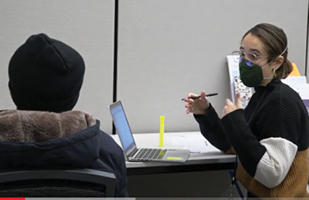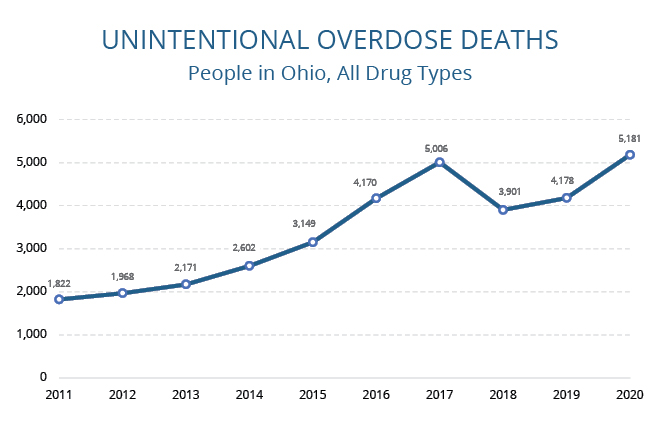Supreme Court Shares Steps to Fight Record Overdoses

The Specialized Dockets Section has highlighted four tactics to help local courts prevent and, if necessary, treat overdoses.

The Specialized Dockets Section has highlighted four tactics to help local courts prevent and, if necessary, treat overdoses.
On the heels of the state’s deadliest year of overdoses in 2020, the Supreme Court of Ohio is leading the charge for local courts.
The Supreme Court’s Specialized Docket Section produced a multi-faceted guide providing best practices for Ohio courts to combat the record-setting number of overdoses that have occurred amid the COVID-19 pandemic. The resource offers strategies for how courts can assist individuals dealing with addiction. The material was approved by the Commission on Specialized Dockets on Dec. 16.
“During this very challenging period, we must do everything we can to help those who come before our courts struggling with substance use issues,” said Chief Justice Maureen O’Connor. “The Court’s guide equips judges and their staffs with a series of options since there are so many different paths to recovery.”

According to the Ohio Department of Health, nearly 5,200 Ohioans died from an overdose in 2020. That was up 24% from the year prior, with 81% of those cases involving fentanyl. Unintentional overdoses appeared to be on the decline from the peak of 5,006 in 2017. To illustrate the general rise in fatal overdoses in Ohio over the past decade, there were 1,822 in 2011.
The Court is highlighting a four-part approach to treating those who enter the justice system with substance use concerns.
Assessment and Resource AllocationAn initial strategy is employing the risk, need, and responsivity (RNR) model. RNR is an evidence-based, three-step process to determine when a person accused of a crime requires more time and services, targeting needs – lack of food, housing, employment – that fuel criminal behavior, and how courts can intervene.
The Ohio Judicial College has an on-demand introductory course that explains the basics of RNR.
‘Specialized’ CareFor courts that have treatment programs, referrals from a general docket to a specialized docket connects those in need with a certified system to aid in recovery. The therapeutic-oriented approach that provides court supervision as an alternative to incarceration aims to increase engagement in treatment and reduce recidivism by those using drugs.
For jurisdictions that don’t have a drug or specialty court, the Court suggests developing one.
Medication-Assisted Treatment (MAT)Court-involved individuals with substance use issues combat underlying conditions, including brain chemistry and mental health issues. These people also often deal with physical withdrawal symptoms. The guide focuses on utilizing MAT during key transitional periods – such as incarceration – to reduce the potential of an overdose upon release.
A journal by the National Association of Drug Court Professionals states that 75% of people with opioid use disorder relapse within three months of being released from jail, while less than 10% of that population enters treatment. A Health and Justice Journal study shows the value of post-release. Those who received MAT following their imprisonment had a 65% lower risk of recidivism than those who didn’t.
Related:
Supreme Court Partnership First to Monitor Drug Court Participants
‘Life-Saving’ Work Highlighted in National Drug Court Month Video
With the rise in overdoses, courts are becoming more prepared to handle urgent situations. The Court suggests partnerships with community organizations to provide fentanyl testing strips and naloxone – medication to reverse an overdose – for at-risk communities.
A recent example occurred with Stark County Common Pleas Court’s veterans treatment program – Honor Court. An area agency trained Judge Taryn Heath and other attendees on how to use the life-saving measures.
“The earlier we can identify and invest in those who come before our courts wrestling with the perils of substance use disorders, the healthier and safer we’ll be as a whole,” Judge Heath said.

